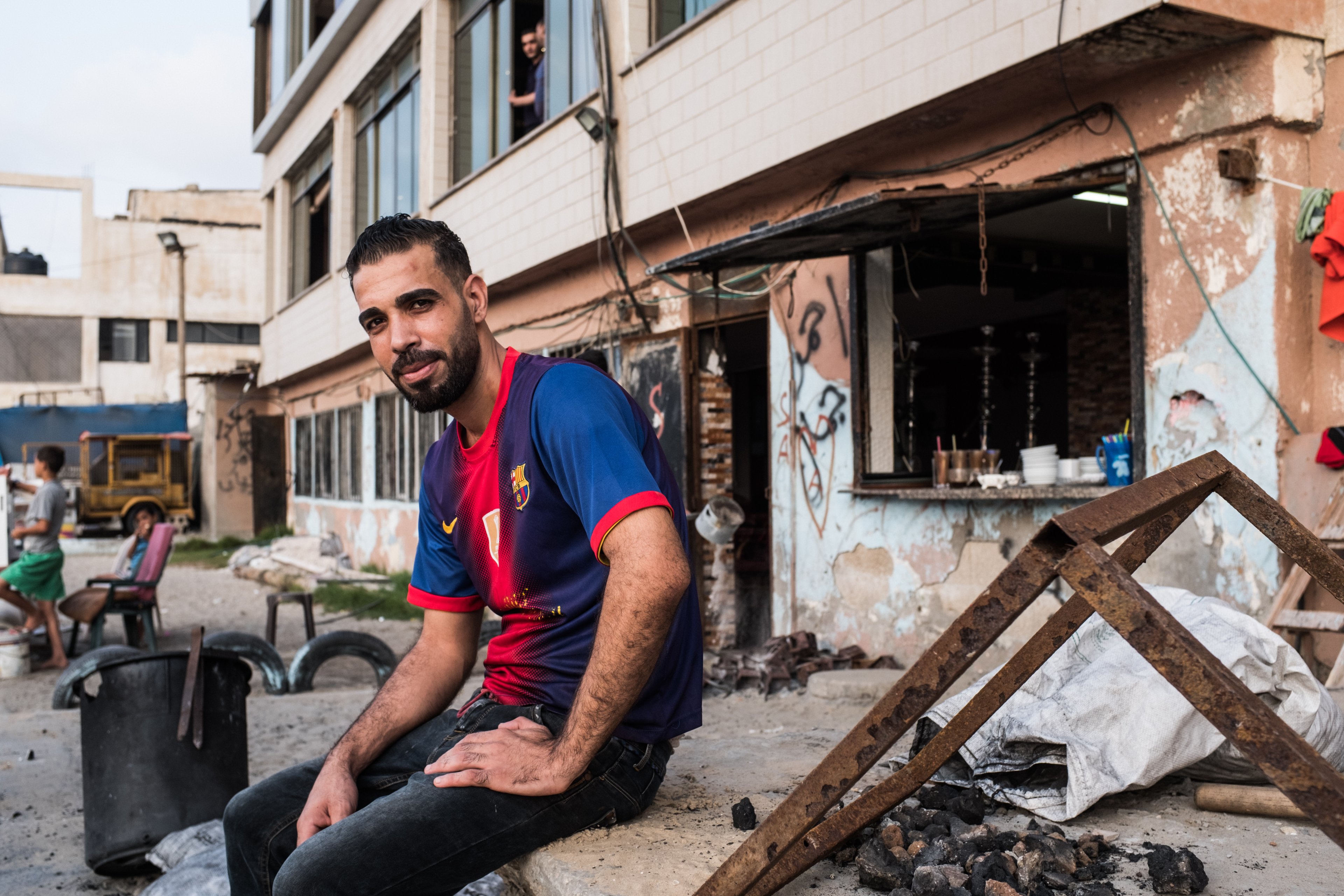
A day in the life of Palestinian Youth
We travel through the West Bank, Gaza and Israel to interview Palestinian youth about their everyday life amidst political unrest.
What’s life really like for the youth of today out in Gaza and the West Bank? We read so much about the region that it is almost hard to reconcile the scenes of near-constant conflict and eternal strife with the fact that young people living there live similar lives to you and your friends.
They have expectations and anxieties. Wants and needs. They dream of escape, and feel thankful for home.
As part of Boiler Room’s Contemporary Scenes campaign, we sent photographer Adlan Mansri on a journey through Palestine to interview a selection of artists, bartenders, journalists, students and more about what life is really like as a young person living in one of the most conflicted and misunderstood regions on the planet.
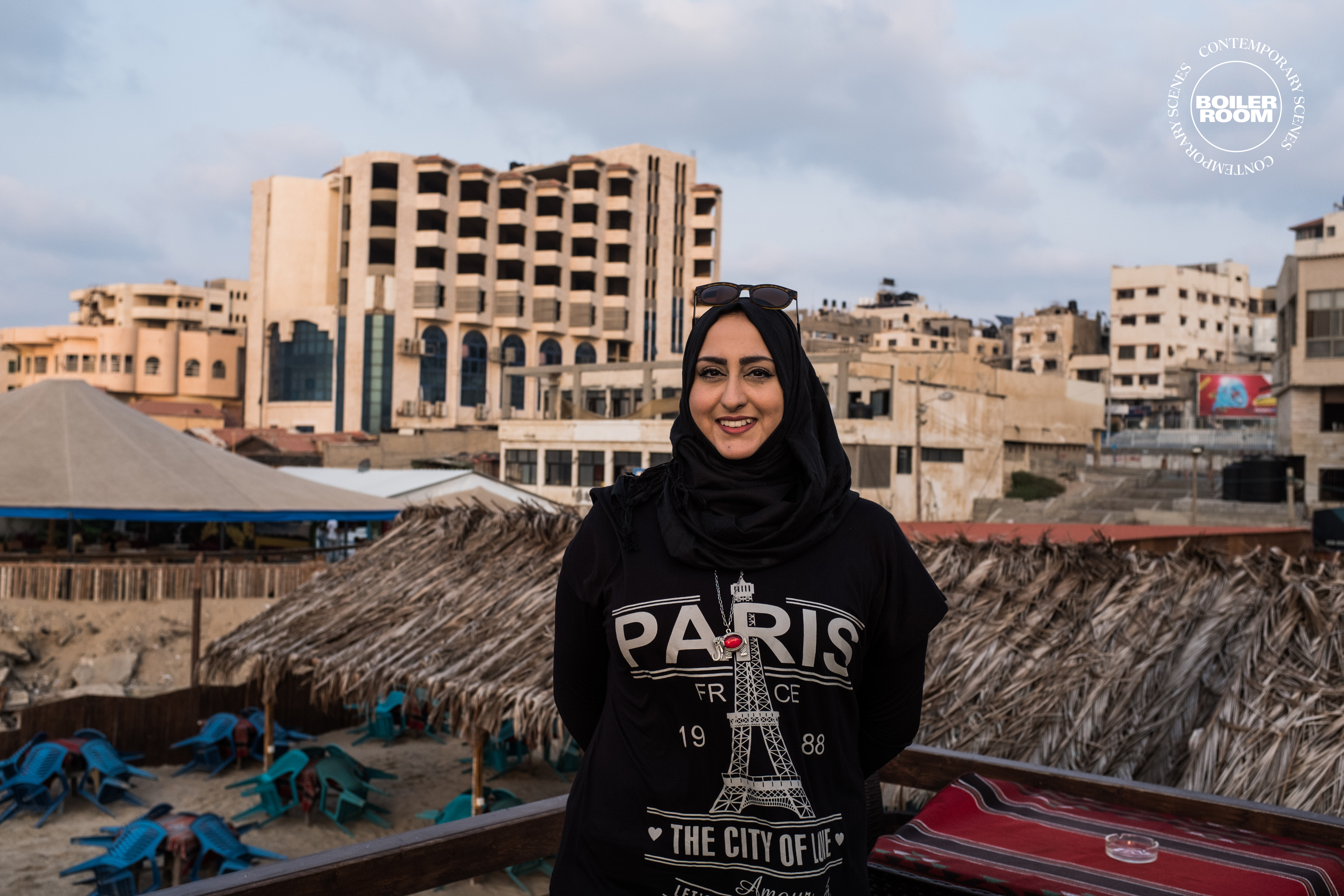
Jehad Rostom, 30, lives in Gaza
What is difficult is the siege, the war and the constant attacks, everything that the Israeli government imposes on us. The political climate here is incredibly complicated, which makes having a decent lifestyle incredibly complicated, too. So even if you manage to find work or have a good family, you can’t be too ambitious. There is no way you can achieve what you want to do.
The feeling that everywhere you go you’re among family is the best thing about living in Gaza. We are a very small community - everyone cares about everybody. The fact we are here despite all the hardships makes it even more dear to us.
For me, travel is the ultimate goal. I can’t remember ever being on a plane. So I want to go around the world, see new things, experience new cultures, and then come back. One of the things that keeps is going is the sea; at least we’re near it and maybe someday I’ll be able to cross it. What gives me hope? The next generation. They’re born with more strength, and more resilience.
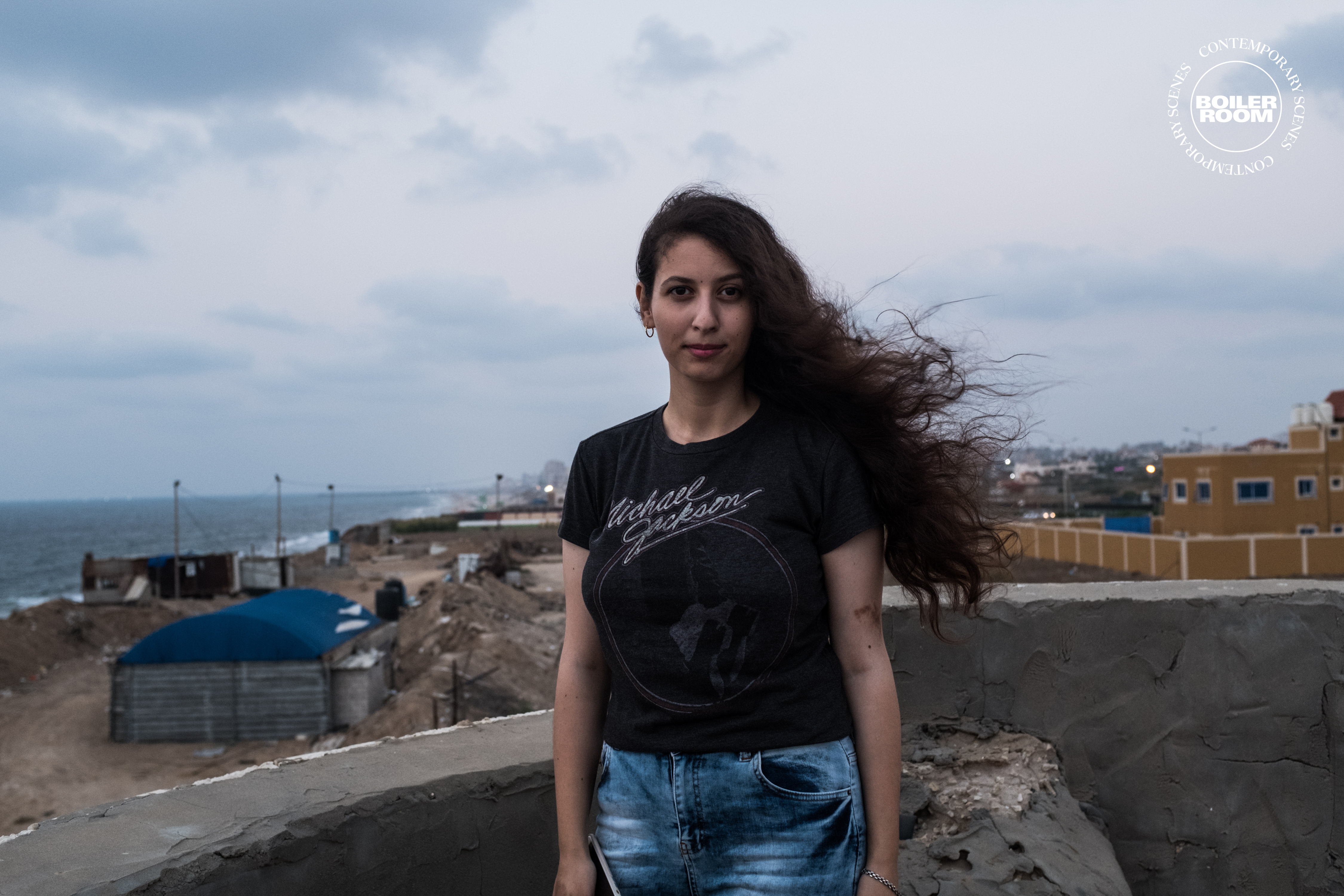
Bayan Abu Sultan, 22, Journalist living in Gaza
Palestinian people are always trying to create something from scratch. This is what's good about life in Gaza. I am trying my best to be a journalist, and be a correspondent for Gaza in the future. Since I graduated from Media Studies in Gaza last year, I try to stay positive, but it’s really hard. There’s the war, the tense political situation, and a high unemployment rate. Usually I spend my days with my friends in our favorite cafe in Gaza. I love eating pizza. Pizza is life.
I’m a huge fan of Michael Jackson. I also like the music of Ahmed Al Haddad, a friend of mine from Gaza. He’s the lead singer and guitarist for a band called Nesan, but I don’t think they’re still going. All the band members have travelled to different places to pursue their lives. Why? Because they couldn’t do music here.
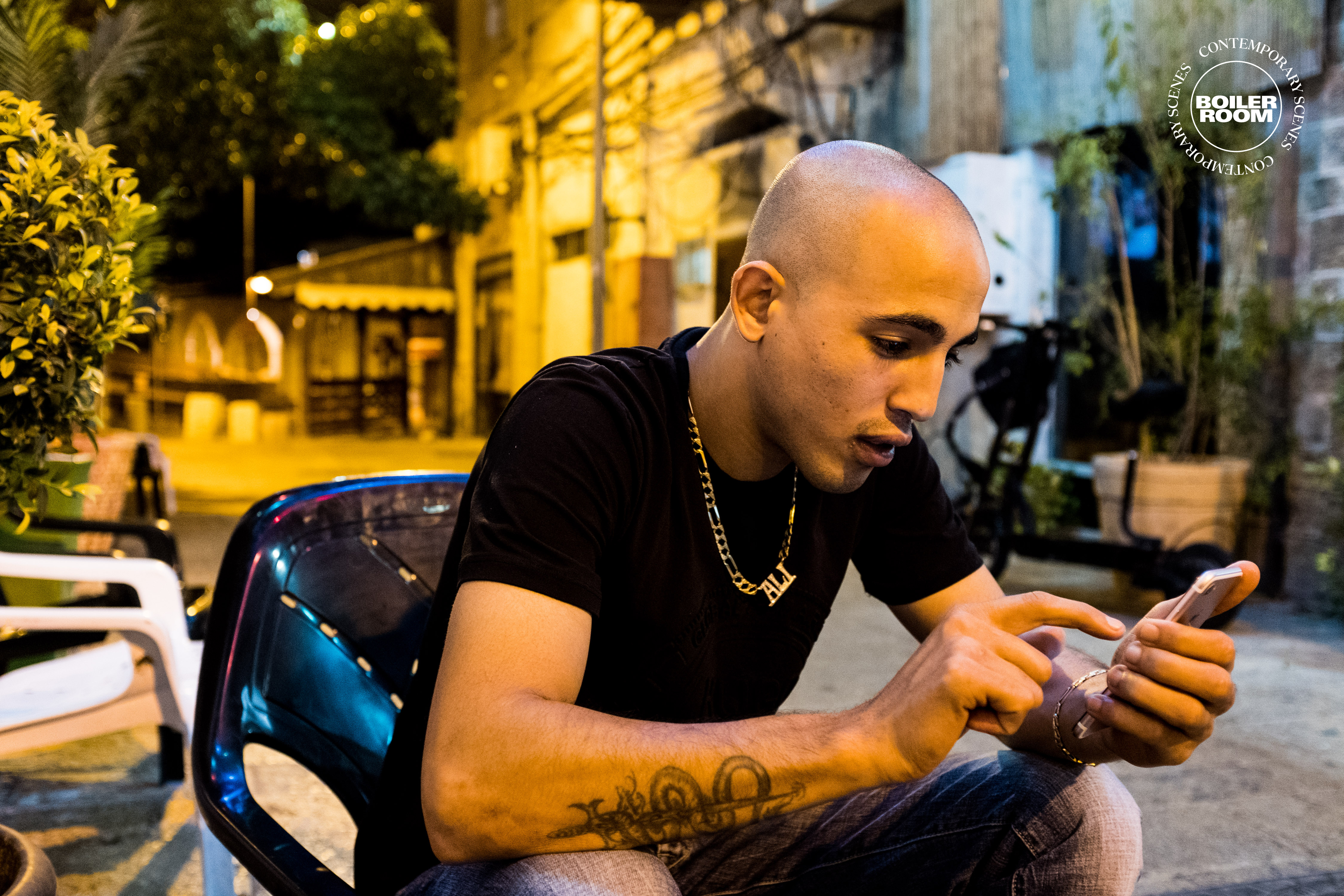
Ali, 26, runs a Sheesha cafe in Jaffa
My Palestinian friends are what I enjoy most about life in Jaffa, but it's not an easy place to live. When you’re Arab here, you can’t do whatever you want. Everything you do is monitored, you can’t move freely.
It’s hard to have hope when you’re Arab. For example, I have my own shisha place in Jaffa, so if I make 10.000 shekels a month, the government will take half of it in taxes. I am lucky enough to have it, but other Palestinians can’t even buy a home. The country doesn’t help us.
I speak fluent Hebrew and Arabic, so usually I listen to Palestinian music but I also listen to music in Hebrew. The Palestinian music I listen to is mostly rap but I also listen to traditional music. I like Tamer Nafar a lot.

Ebaa Muntha, 25, actor living in Jaffa
I’m from a small village in the Golan Heights called Ein Qiniya. The Golan Heights, now under Israel’s control, used to be part of Syria. If I had to name the best thing about living here in Jaffa, it’d be the fact that I live with Palestinian people. We share the same struggles, and pretend to live normally here. When I lived in the Golan Heights, I was a farmer because that’s what we do there. When we don’t have anything to do we just chill under the trees and we drink a lot of Mate.
Now I'm an actor, but I can’t play a lot of things because of the Israeli-Palestinians conflict. I see myself in Europe, acting, and I want my work to be about the conflict. Not here, because you can’t raise your voice about these things, it’s complicated.
I love blues and jazz. I also listen to a lot of techno. But I listen to a lot of different kinds of music like Terez Sliman from Haifa, or Maysa Daw. In Golan Heights we have this band called Tootard. I love them.
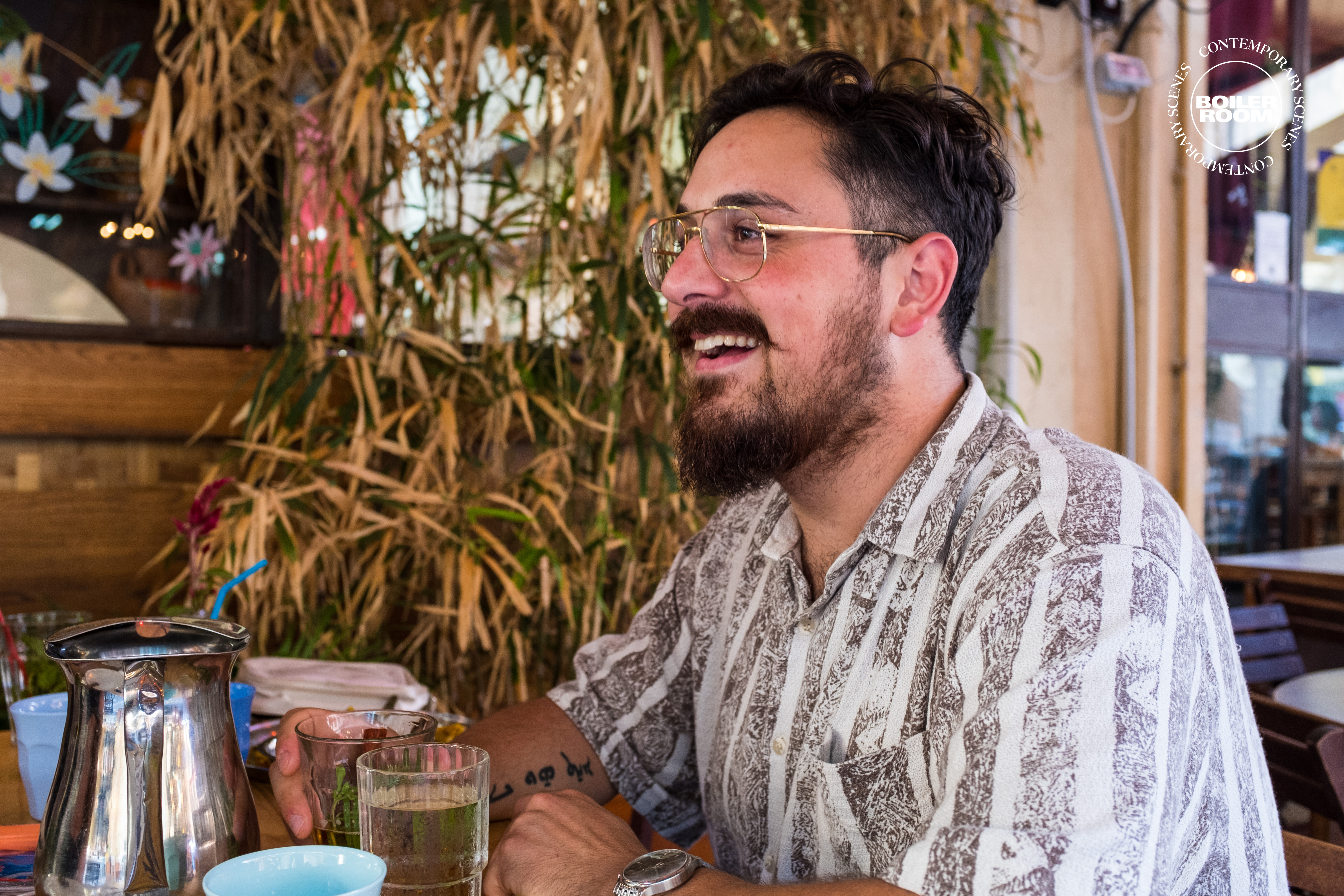
Bashir, 27, Nurse and Actor living in Haifa
I’m studying to be an actor, but I am a nurse by profession. The community of Palestinian people is the best thing about life in Haifa. There are places for art, music and theatre. But life is difficult, because we’re a minority here. When you look at arts, we are experiencing a rise, especially in music. Lots of places have good vibes in the concentrated Arab community like Haifa, Ramallah, or Jaffa.
When you ask a Palestinian what the worst thing about living in Israel is, he will say being a Palestinian. Anyone who lives here will understand how many layers there are in that statement. When you work in the arts as a Palestinian, you don’t find financial support, except from Palestinians. There is also racism, which of course happens all over the world, but it’s systemic here, from the government downwards.
Living in Haifa, you can see there’s hope for my community. In the Palestinian art scene, there is space for expression. I listen to oriental music, from Oum Kulthum to Ziad Rahbani. We have a lot of hip hop artists here, like Tamer Nafar. But there are other kinds of music too, both the Ghazall Band from Nazareth and Rasha Nahas, a band from Haifa, play indie music.
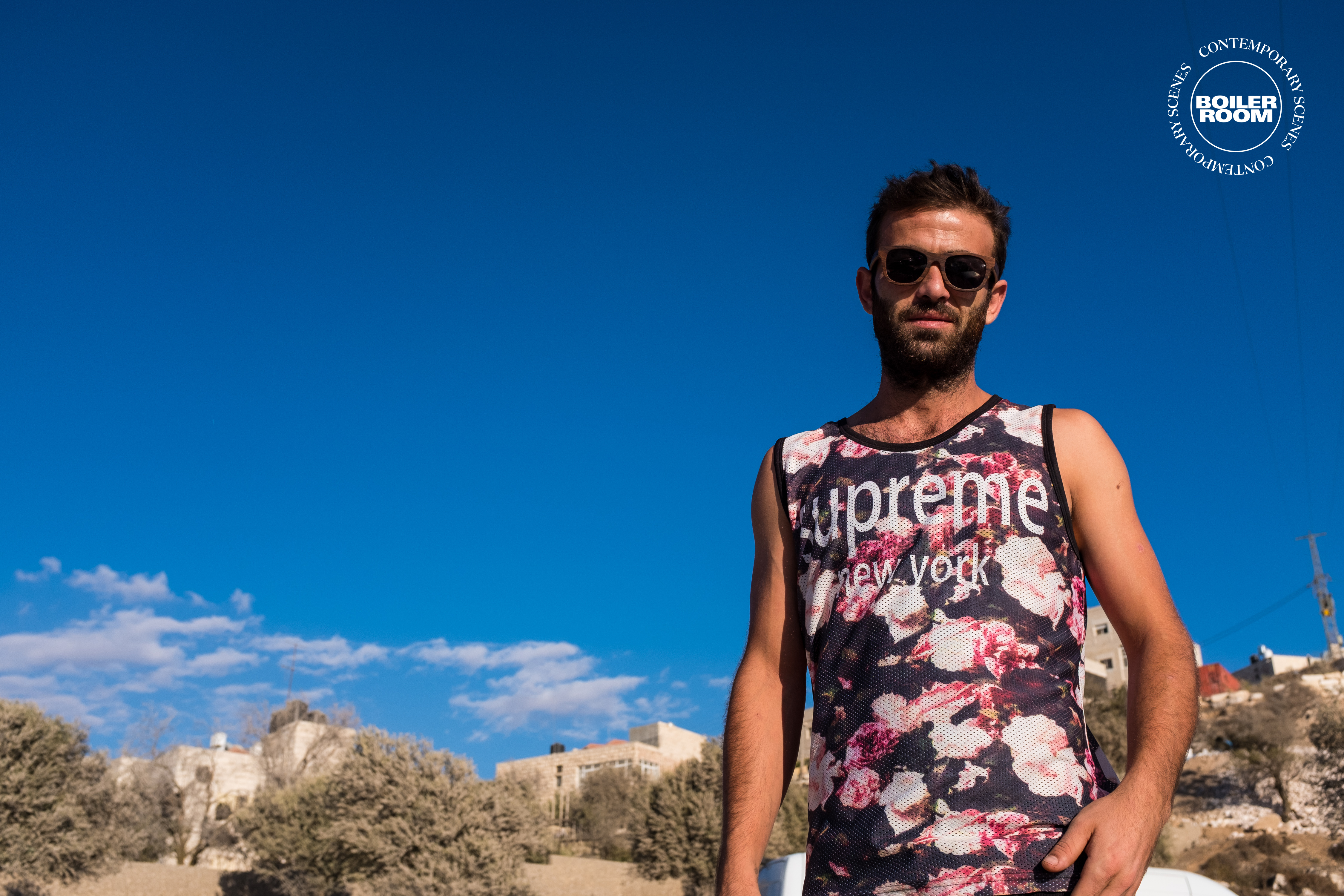
Ali Aldeek, 25, cinematographer living in Kifr Ni’ma, the West Bank
I was born in Jordan. I’m actually half Palestinian and half Brazilian. My town is quite free, you feel you can do a lot of things out of the ordinary, so I love living here. The occupation is obviously the worst thing happening here, there is a lot of interference in individuals lives. I think that in some places the traditional people are a little bit too much, I also think that there is a lot of authority, a lot of interventions by the police.
There are lots of opportunities to work, but you have to be smart. My dream is to be a cinematographer here in Palestine. I graduated in visual arts and went on to study video arts which has focused my attention on cinematography and photography. There is plenty of filming done here, but most of the time film crews are flown in.
I love hiking in Palestine, exploring new places in my country. It’s not always easy. You can’t cross borders, you can’t go further than a certain point… It’s not easy not to be able to explore your own country.
Musically, I am really into local hip hop. I was working with a band called Straight Out of Palestine. It didn’t work out in the end because they separated, but they had really good stuff. I also love Stormtrap, with Asifeh who is one of the founder of Ramallah Underground.
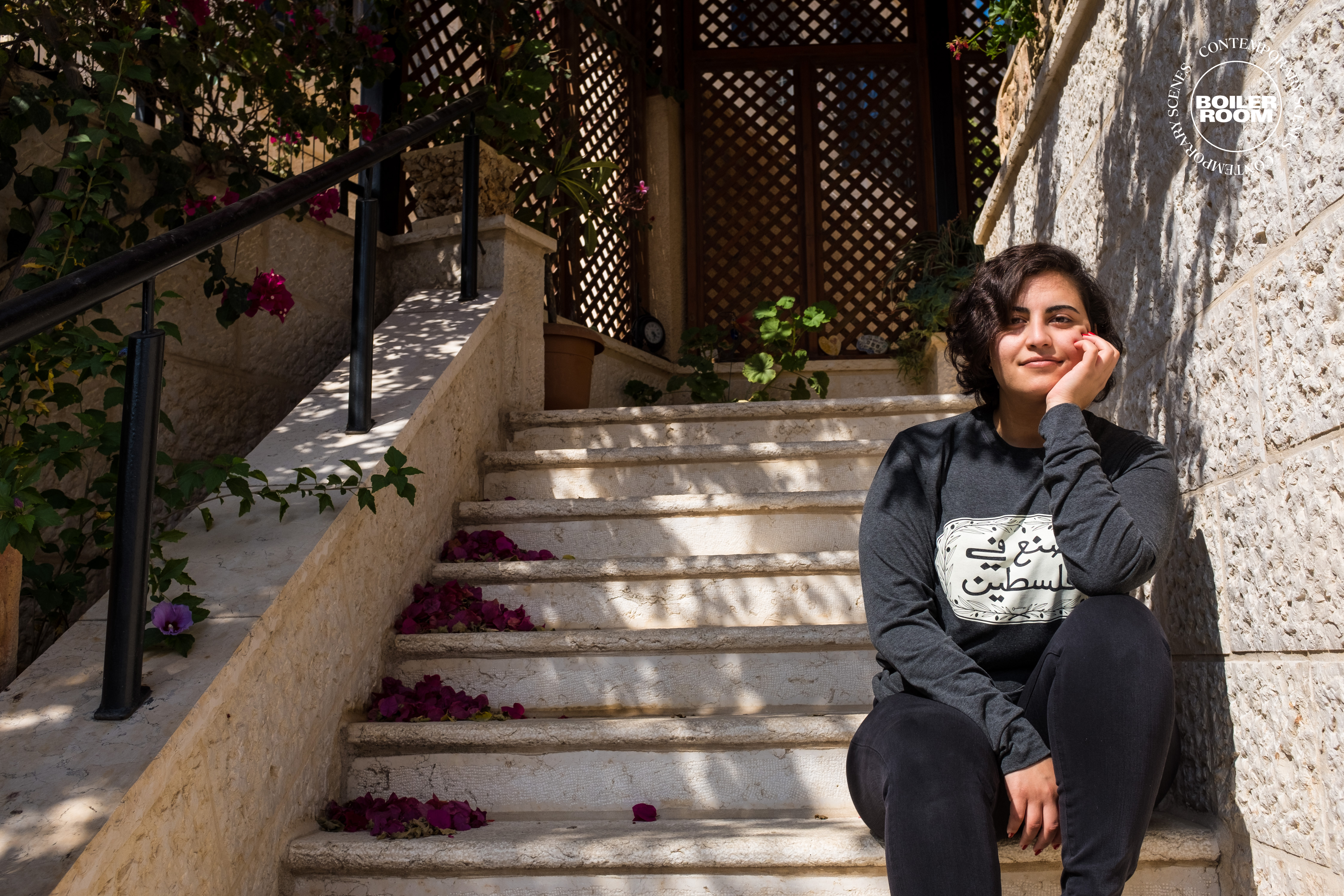
Sima, lives in East Jerusalem
After living abroad for a few years, I realised I hate how individual western communities are, and I love how collective and connected the Palestinian community is. You’re never alone, this sense of community is the best thing about Palestine.
We have a beautiful country but can only access some of it due to limited freedom of movement. I grew up here so checkpoints and obstacles blocking your movement is something I’m very used to. I remember the culture shock of visiting the USA and being able to drive for 10 hours without being stopped. The occupation will always be the worst thing about being here, but that’s not to say there aren’t things within our own community that I find worrisome and wish I could change.
I would have to say my favorite thing about Ramallah is how many events there are. I feel this embodies our resistance through art. There’s always something to do: cultural events, dance performances, movie showings, book releases, or poetry sessions. I generally like pop music but recently I’ve been getting into alternative Arabic music and into Arabs who do mashups of old and new songs. My favorites would include JadaL, Ens o Jam, and Noel Kharman.
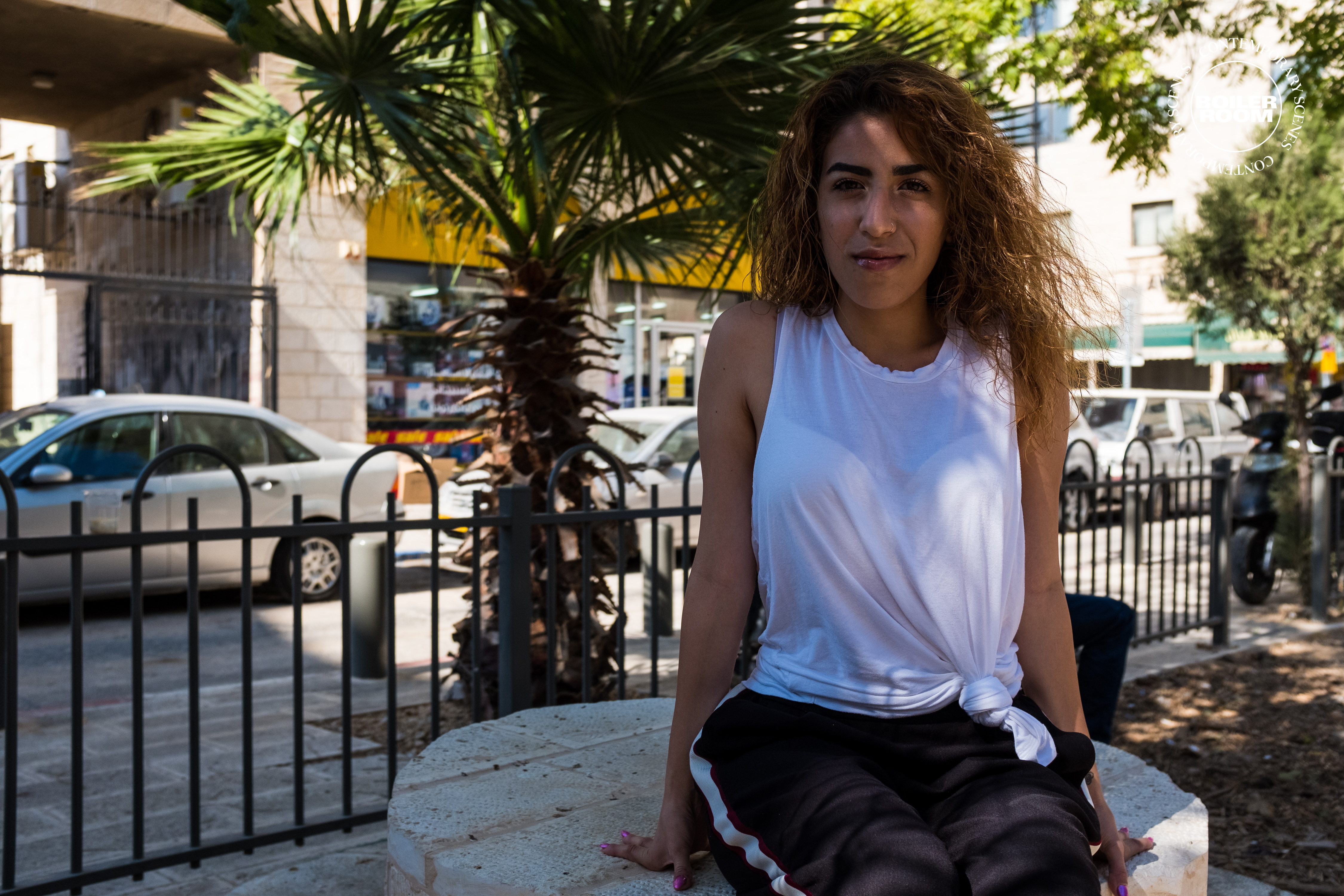
Reem, 21, Student living in East Jerusalem
My roots are Palestinian; my father's family originate from Hebron and my mother's family originate from Beit Hanina. I am studying a BA in Arts and Humanities online but I also manage my own clothing brand.
The best things about living in East Jerusalem? The history, culture, and the fact you’re always learning through experience. There’s always something new to see in Jerusalem which helped me always feel inspired here. In East Jerusalem there is the discrimination and the borders which makes it a struggle to connect with others but we push through it anyway. Commuting in this country is one of the most tiring parts of living here and it makes it less motivating for a person to want to do anything.
I hope to be able to give back to my community through the different projects I work on in order to promote the Palestinian cause. My end goal is to open up community centers within the West Bank, to encourage those who would be interested in arts, sports, and more. My daily life revolves around me traveling between Ramallah and East Jerusalem to work on fashion designs for my brand as well as working on productions with a stop here and there.
I can't just give one favorite musician locally but a few are Bashar Murad, Jowan Safadi, and Makimakkuk. Internationally, my favorite artist is definitely Marilyn Manson.
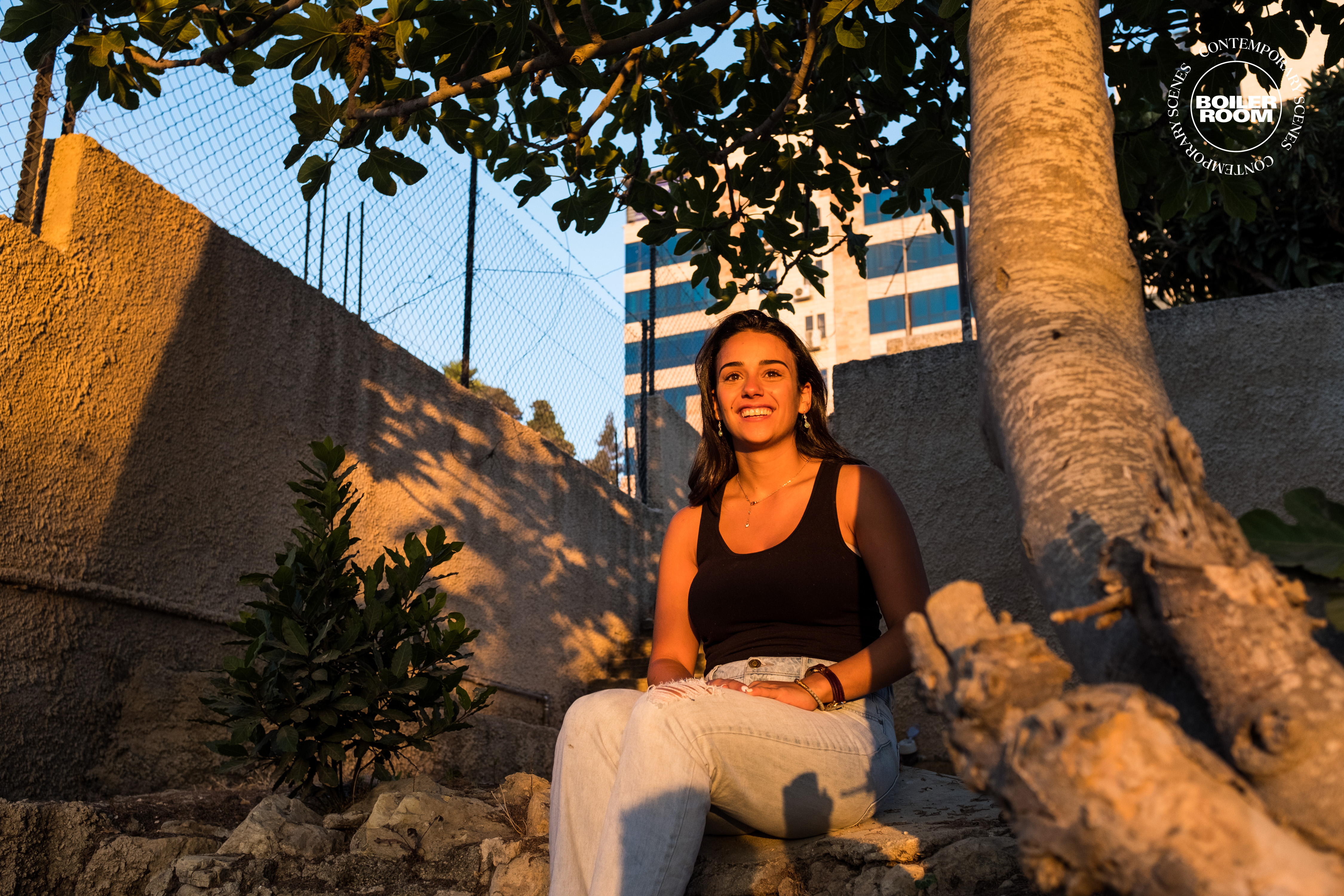
Amal, 24, works for a non-profit in Jerusalem
I was born in Khalil (Hebron) but grew up in North Carolina. I studied Anthropology and International studies and decided to move back to Palestine after I graduated.
The past two years in Palestine have been grounding, heart-rendering, and radicalising in shaping my world views and what it means to resist. I am so moved by all the tangible love and support I have around me and feel blessed to be living here. Living here is a form of resistance, a collective struggle in combatting our oppressors.
The worst thing about living here are the social expectations that I don’t relate to, but feel accountable for as a Palestinian woman. I don’t know how I see my future here, I’m privileged enough to not limit myself to Palestine and seek a more secure life abroad.
I’m currently working on a cultural non-profit to serve the youth, specifically university students. I want them to utilise already existing, but alternative, spaces to express themselves artistically or culturally. I try to support the local underground scene and attend their sets. I listen to classic Arab singers, like Fairouz, in the morning and Frank Ocean, Travis Scott, SZA, or The Blaze while walking to work.
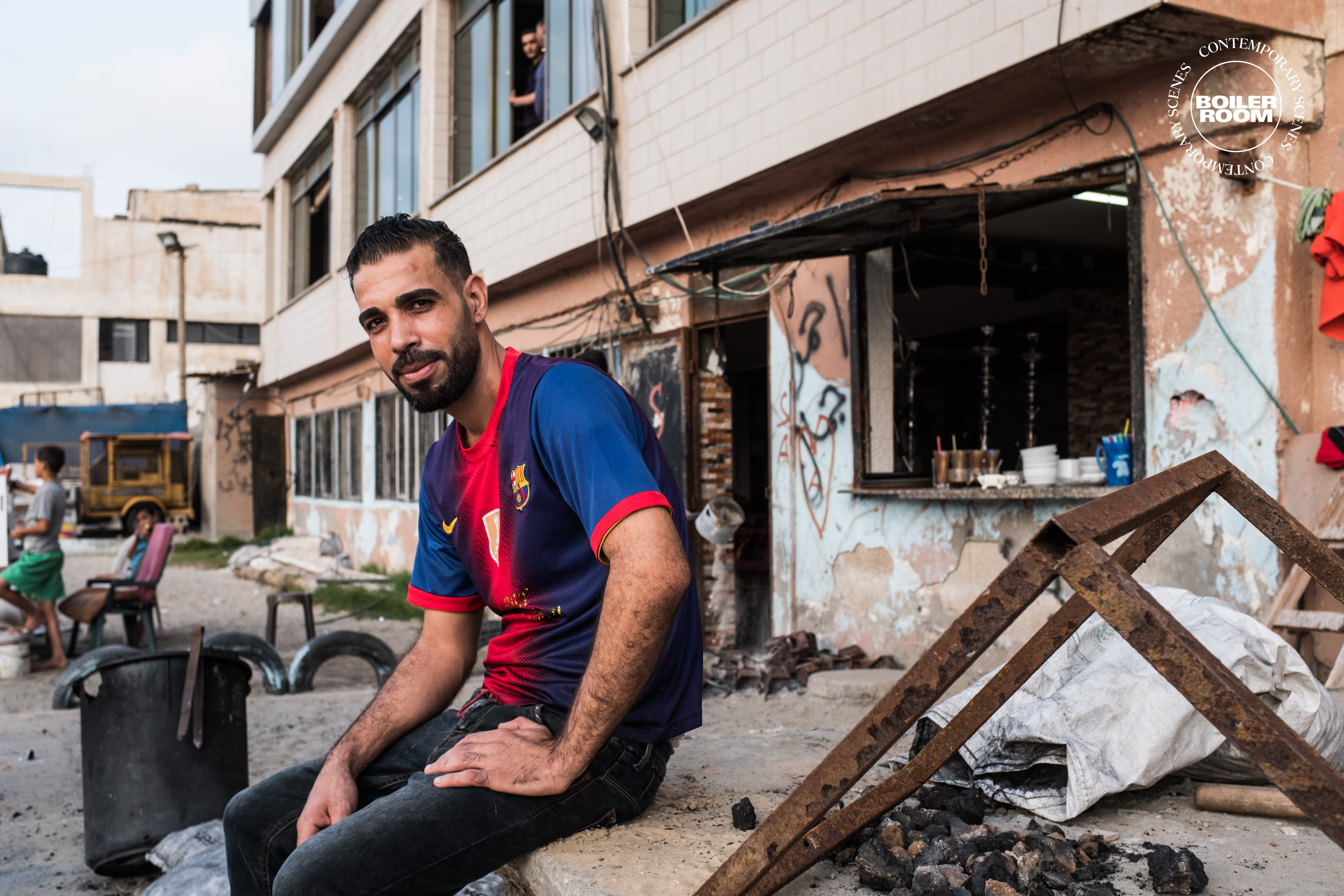
Sliman Al Baqa, 31, Bartender living in Gaza
I work in a restaurant on the beach. I got married a couple of days ago. Nothing is good about living in Gaza because of the siege we’re living under. We’re suffering from that. You never know what’s going to happen, so you can’t make any plans. I don’t see any future for me here. My routine is very boring, and when my day is done, there isn’t much to do, I go back home and rest. But I like to listen to Mohamed Assaf, a singer from Gaza. He won Arab Idol in 2013.
All interviews and photography courtesy of Adlan Mansri
A part of Contemporary Scenes, a BR series uncovering underground collectives, artists and subcultures from across the world






























